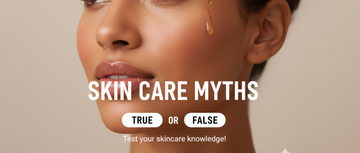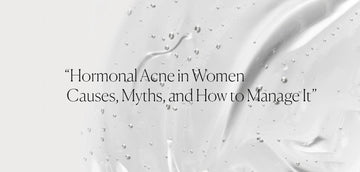Introduction: Why Pigmentation is a Common Concern
Hyperpigmentation stubborn dark spots, acne scars, uneven skin tone is one of the most common skin issues in Pakistan. The reasons are clear: year-round sunlight, high pollution, hormonal changes, and post-acne marks.
Among all the solutions out there, Vitamin C serums are the most talked-about. But do they actually work for pigmentation? And what should you look for in a good serum? Let’s break it down.
What Does Vitamin C Do for the Skin?
Vitamin C is a dermatologist-loved ingredient, often called the gold standard for brightening. Here’s why:
-
Fades Pigmentation: Reduces melanin production, helping lighten dark spots.
-
Boosts Collagen: Improves texture, firmness, and skin elasticity.
-
Protects Against UV Damage: Neutralizes free radicals caused by sun exposure and pollution.
A research study by NIH confirms Vitamin C’s role in treating hyperpigmentation and improving overall skin brightness.
How Effective is Vitamin C for Pigmentation?
The short answer: Yes, it works if you’re consistent.
-
Timeframe: Most people see results in 6–8 weeks of daily use.
-
SPF is essential: Without sunscreen, pigmentation will return even with Vitamin C.
-
Concentration matters: 8–20% is the sweet spot for visible improvement.
So, while Vitamin C isn’t an overnight fix, it is one of the most effective long-term solutions for dark spots.
Using Vitamin C in a Pakistani Skincare Routine
Given Pakistan’s strong sun exposure, Vitamin C is best used in the morning routine:
-
Gentle Cleanser → removes dirt without stripping skin.
-
Vitamin C Serum → 3–4 drops across the face.
-
Moisturizer → locks in hydration.
-
Sunscreen (SPF 50+) → absolutely mandatory.
This simple routine not only helps reduce pigmentation but also prevents new dark spots from forming.
🍒 Best Supporting Ingredients for Pigmentation
Vitamin C works even better when paired with other brightening actives. Look out for serums that combine:
-
Ferulic Acid: Stabilizes Vitamin C and increases antioxidant power.
-
Niacinamide: Improves barrier health, reduces redness, and brightens.
-
Alpha Arbutin: One of the most effective ingredients for fading hyperpigmentation by slowing melanin production.
-
Acerola Cherry Extract: A natural, powerful source of Vitamin C.
Example: A formula like QIARE’s C10 Vitamin C Serum combines Vitamin C + Alpha Arbutin + Ferulic Acid + Acerola Cherry, creating a complete solution for stubborn dark spots and dullness.
Common Mistakes with Vitamin C Serums
Many people give up on Vitamin C because they make these mistakes:
-
Skipping sunscreen: Without SPF, results disappear quickly.
-
Mixing with retinol at the same time: Can cause irritation; use Vitamin C in the morning, Retinol at night.
-
Expecting instant results: Pigmentation takes time to fade consistency is key.
-
Using Vitamin C alone: Pairing it with Alpha Arbutin or Niacinamide boosts results.
Conclusion: Does Vitamin C Really Work?
Yes Vitamin C is one of the most effective ingredients for pigmentation when used correctly. For Pakistani skin that faces constant sun and pollution, it not only brightens but also provides daily protection against damage.
If you’re struggling with uneven tone or dark spots, look for a serum that doesn’t just have Vitamin C alone but combines it with other proven brighteners like Alpha Arbutin.
That’s why options like QIARE’s C10 Serum which blends Vitamin C, Alpha Arbutin, Ferulic Acid, and Acerola Cherry stand out as powerful solutions for pigmentation and healthy, radiant skin.




